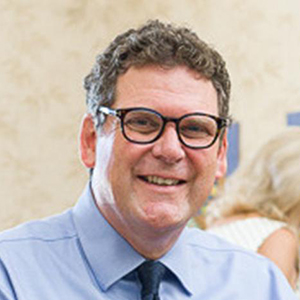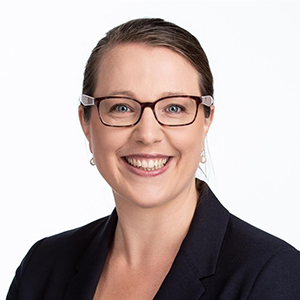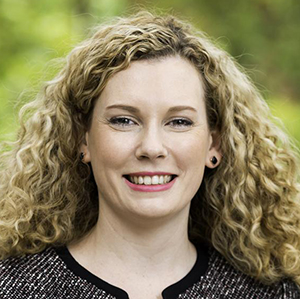In a world where technology and social media have us more connected than ever, it seems counter intuitive, but the World Economic Forum reports that loneliness has reached epidemic proportions. In Australia, one in four people are lonely with nearly 30 per cent rarely feeling as though they belong to a group of friends. In the UK, one in five feel lonely all or most of the time, with nearly 200,000 older people not speaking to a friend or relative in more than a month. And, in the US, more than 50 per cent of the population is struggling with loneliness, with a quarter of respondents saying they rarely feel understood by others.
Fast becoming one of the greatest public health challenges of our time, loneliness is considered to be as harmful as smoking 15 cigarettes a day and more deadly than obesity.
With global costs exceeding those of cancer, diabetes and chronic respiratory disease combined, it’s time to take a stand. But how?
What is loneliness?
 According to Professor Nicholas Procter, UniSA Chair: Mental Health Nursing and leader of the Mental Health and Suicide Prevention Group, if we are to combat and alleviate the pain of loneliness we must first understand what it is.
According to Professor Nicholas Procter, UniSA Chair: Mental Health Nursing and leader of the Mental Health and Suicide Prevention Group, if we are to combat and alleviate the pain of loneliness we must first understand what it is.
“Loneliness is subjective, which means it’s different for every individual,” Prof Procter says. “But, ultimately, it’s an unwelcome feeling of sadness and distress, stemming from a sense of not being able to meaningfully connect with the people around you.
“Feeling like you belong is vital for mental health as it helps you identify who you are and how you connect with others in the world. Being around people does lift you. But when this connection is missing, you can start to feel isolated and over time this can develop into loneliness.
“Without a sense of belonging, you’re at increased risk of physical and mental health problems – depression, anxiety, panic attacks, drug and alcohol misuse, as well as a worsening of existing physical ailments – mostly because you’re not connected to anyone.
“By not talking about your issues or concerns, your mental health may decline and any physical issues you might have worsen because you’re not seeking support and early treatment. And, as loneliness typically occurs alongside perceived burdensomeness, you’re less likely to try to get help; it’s a terrible self-fulfilling cycle.”
Who’s at risk?
Loneliness does not discriminate – it can affect anyone in the community. But research shows that some groups are more vulnerable than others.
 Ageing and dementia expert and co-director of UniSA’s Cognitive Ageing and Impairment Neurosciences laboratory, Associate Professor Hannah Keage, says older people are particularly vulnerable to loneliness.
Ageing and dementia expert and co-director of UniSA’s Cognitive Ageing and Impairment Neurosciences laboratory, Associate Professor Hannah Keage, says older people are particularly vulnerable to loneliness.
“Older adults are more likely to be lonely for a number of reasons,” Assoc Prof Keage says. “Physicality plays a major role: older people are not as physically capable as they once were, making them less able to get out to solidify important relationships.
“Similarly, older adults are more likely to experience the loss of a spouse, friends or family, which can create unwanted isolation and sadness.”
Dr Keage says the interesting thing about ageing and loneliness is that loneliness has the potential to increase the risk of dementia by 60 per cent over a three-year period.
“But it’s important to understand that social isolation does not increase dementia risk, it is only loneliness that increases risk.
“People often blur the lines between loneliness and social isolation, yet they are very different. Social isolation is about the number of people you come into contact with each day, whereas loneliness is a subjective feeling of disconnection.
“You can be widowed and living by yourself, yet not feel lonely. Or, you can be surrounded by people and feel completely isolated – it’s all about the subjective quality, not the quantity, of your social connections.”
Society’s under preparation for an ageing population is also creating anxiety among some older people, as Prof Procter explains. An independent reviewer of the Oakden Older Person’s Mental Health scandal, he says the appalling conditions uncovered at the aged-care facility have caused many older Australians to feel worried about their own futures.
“Oakden really cuts to the heart of it,” Prof Procter says. “When our most vulnerable and frail citizens are isolated, ignored and abused, there’s always going to be serious fallout.
“In Australia, the over 85 age group is the most at-risk of suicide, far more so than younger people. Older people have much higher rates of death by suicide.”
The loneliness paradox
International studies report that young people (between 18-29 years) have the highest rates of loneliness among all age groups. Given their use of smartphones is nearing 95 per cent, it’s possible there could be a correlation.
 Associate Professor Harry Savelsberg, Associate Head of UniSA’s School of Psychology, Social Work and Social Policy, says while society is more digitally connected than ever, it’s unclear how this affects loneliness.
Associate Professor Harry Savelsberg, Associate Head of UniSA’s School of Psychology, Social Work and Social Policy, says while society is more digitally connected than ever, it’s unclear how this affects loneliness.
“The jury is still out on the effect of technology and loneliness, particularly among young people,” Assoc Prof Savelsberg says.
“Certainly, young people love their mobile phones – in Australia, nearly 70 per cent of 18- to 24-year-olds admit to using their phones excessively – but this doesn’t necessarily equate to an increased risk of loneliness. What is important is the quality of the connections between young people and others, particularly as this is a transition stage where identities and aspirations are being forged, together with a sense of self-worth.
“The challenge with social media and other technologies is that they present an unrealistic view of the world, which can lead to unhealthy comparisons and a sense of dissatisfaction. As a consequence, young people may feel unworthy or excluded and fear reaching out to others.
“Of course, there are also debates about how addictive online technologies are, how they can impair interpersonal interactions, and how they generate depressive symptoms. But, conversely, there’s also evidence to show how social media can help reduce signs of depression.”
Interestingly, the BBC’s Loneliness experiment showed people with high levels of loneliness don’t use social media any more frequently than other people, but they do have more Facebook friends with whom they are only friends online.
Assoc Prof Savelsberg says young people may be more susceptible to loneliness because they are still developing, both socially and emotionally.
“Young people are still learning to how navigate social situations and how best to regulate their emotions. They’re trying to find their place in the world, where they fit, and how they relate to others, and sometimes, feeling like they don’t belong can be a normal part of the process.”
A breaking of communal bonds
Changing lifestyles may also contribute to the surge of loneliness. Today, more people live alone than ever before in recorded history – in Australia, one in four people are sole dwellers (a 300 per cent increase since the end of World War II), and in Europe and Japan, this is one in three. While living alone isn’t a determinant of loneliness, for many people, it is a key contributor.
 Dr Kate Gunn, a Clinical Psychologist and Research Fellow with UniSA’s Cancer Research Institute and Department of Rural Health, says the changing nature of rural communities is having a huge impact on people’s connections and wellbeing.
Dr Kate Gunn, a Clinical Psychologist and Research Fellow with UniSA’s Cancer Research Institute and Department of Rural Health, says the changing nature of rural communities is having a huge impact on people’s connections and wellbeing.
“Many rural communities are experiencing declines in population, at least in part because of improved agricultural technology and economies of scale,” Dr Gunn says.
“So, as farms are sold, and technology replaces people – fewer people are living in rural areas. This, along with other drivers of urban migration, for example to access higher education and specialist health services, has a big impact on the people who remain. Services such as schools are closing, and opportunities for social connection are declining.
“As a result, little children must travel longer distances to get to school, and on Eyre Peninsula where I grew up for example, people often drive for over an hour to watch their local sporting team. In the context of tough times on the land … for some people, it is all becoming too much.”
Dr Gunn says farmers are particularly vulnerable to poor mental health, not only because of the many factors beyond their control that influence their livelihoods, but also because of the social isolation.
“Farming is such an intense occupation; farmers spend a lot of time alone with their thoughts, they’re often isolated from friends and extended family, and find it hard to leave their farms to reconnect with people as farm work is never ‘all done’,” Dr Gunn says.
“Research has shown that nearly 50 per cent of farmers are likely to have a mild or worse mental health condition, compared with just 26 per cent of the mainstream rural population.
“Sadly, farmers and farm workers also have much higher rates of suicide than the general population.”
A quest to belong
Not surprisingly, refugees and asylum seekers are at extreme risk of loneliness and suicide. Desperate, scared and alone, they’ve risked everything to leave their home country, only to face prolonged psychological stress and isolation in their place of refuge.
A national suicide prevention program has been developed by Prof Procter to address this at the frontline. Working with the Australian Red Cross and supported by UniSA’s first crowdfunding initiative, the program trained more than 400 NGO workers and volunteers to better support refugees and asylum seekers in the Australian community.
Prof Procter says the combination of stress and isolation faced by refugees and asylum seekers can be deadly.
“Loneliness is a massive issue for this group because they’re disconnected from family – they can’t go back, they can’t go forward, they’re in limbo. Plus, they have a massive dose of uncertainty which is related to mental distress and suicidal ideation,” Prof Procter says.
“In Australia in the past four years, there have been approximately 21 people of refugee or asylum seeker background who have died by suicide; much of this is related to complex stress related factors.
“Our suicide prevention initiative, developed in partnership with the Australian Red Cross, is based on national and international best practice and uses safety planning for people at increased risk of suicide,” Prof Procter says.
“By training community support workers, we can build their skills, confidence, competence and attitudes to better manage suicidal states, which in turn can reduce suicidal urges by up to 50 per cent.”
Connection is key
There’s no doubt that people in extreme crisis require significant support. But what about everyday people who are struggling with everyday stresses?
Dr Miriam Posselt, a registered psychologist and research fellow with the School of Nursing and Midwifery, says connection plays an important role in managing stress.
“Connectedness and social interaction are essential for positive mental health,” Dr Posselt says. “But ironically, when people feel stressed, a common response is to withdraw from friends rather than reach out to them.
“By sharing thoughts and feelings with trusted others, we’re creating a conduit to regulate our emotions in a healthy way, instead of bottling them up to a point where we feel isolated and alone.”
Dr Posselt says the challenge that many people face is figuring out how to create social connections in their lives at a time when they’re stressed and really don’t want to.
“Gaining an awareness of the things that can make us stressed can help us better predict and manage our responses including our emotions,” Dr Posselt says.
“Sometimes this requires intentionally planning for that event. If we’re ready to counteract stress triggers with positive, socially driven strategies, then we’re more likely to achieve a healthier outcome.
“And, there are all sorts of things that can help – exercise, talking with a friend, volunteering, playing sports, or even just playing with a pet – it’s all about what creates a sense of connection for you in your world.”
Finding that connection, however, can be challenging, with individuals, communities, and governments alike struggling to find an effective solution.
Without doubt, connection is key. It’s such a simple proposition but not an easy one to realise.
The advice of author C.S. Lewis seems fitting: “Friendship is born at that moment when one person says to another: What! You too? I thought I was the only one."
If this story raises any issues for you, contact Lifeline on 13 11 44 or Beyond Blue on 1300 22 4636